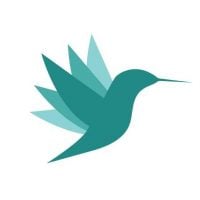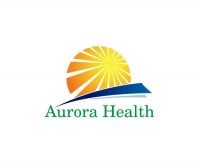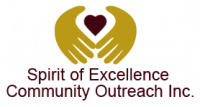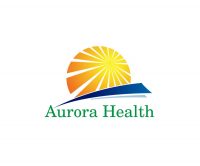Port Health Services - Washington Clinic
Drug Rehab Center in Washington, North Carolina
The Washington Clinic is an addiction treatment facility that offers a range of specialized services and is accredited by CARF and SAMHSA, with experienced professionals dedicated to assisting those in need of recovery.
About This North Carolina Facility
Port Human Services - Crisis Program, located in Washington, North Carolina, is dedicated to improving the lives and well-being of individuals and families affected by substance use and mental health disorders. This non-profit rehab facility specializes in treating alcoholism, drug addiction, opioid addiction, and substance abuse.
The program aims to provide comprehensive services that treat the whole person, empowering patients to find their way forward. It upholds values that embody a guiding philosophy of supporting individuals on their journey to recovery.
Accredited by CARF (Commission on Accreditation of Rehabilitation Facilities) and SAMHSA (Substance Abuse and Mental Health Services Administration), Port Human Services - Crisis Program offers a range of evidence-based treatment methods and levels of care to ensure high-quality standards.
- Individualized treatment plans tailored to each patient's needs
- Comprehensive approach addressing co-occurring disorders
- Supportive and compassionate environment fostering healing
The facility focuses on treating individuals struggling with alcoholism, drug addiction, opioid addiction, substance abuse, and mental health disorders.
For someone battling opioid addiction, Port Human Services - Crisis Program provides a structured and supportive environment to overcome the challenges of addiction. Through a combination of evidence-based therapies, medication-assisted treatment, and counseling, the program helps individuals achieve sobriety and develop coping strategies for long-term recovery.
Genders
Ages
Modality
Additional
Accreditations
SAMHSA

CARF
The Commission on Accreditation of Rehabilitation Facilities (CARF) is a non-profit organization that specifically accredits rehab organizations. Founded in 1966, CARF's, mission is to help service providers like rehab facilities maintain high standards of care.
Conditions and Issues Treated
Using both legal medications and illegal substances in order to maintain an addiction is substance abuse. If you are taking more of your prescription, or earlier than the prescribed time interval between doses than is directed you may be abusing that medication. If you are obtaining legal medications illegally in or near Washington, NC, you may be suffering from substance abuse.
Illegal substances can become addictive after a single use and lead rapidly to substance abuse. The professionals at Port Health Services - Washington Clinic are here to help.
Opioids are a set of drugs prescribed for pain relief. Health care providers prescribe opioids for relief of severe pain after major surgeries and in conditions like cancer. Oxycodone, fentanyl, oxymorphone, hydrocodone, codeine, and morphine are some of the commonly prescribed opioids. They also include illegal drugs of abuse like heroin. Opioid addiction refers to the compulsive seeking of opioids, even when they are not required medically.
Opioid addiction treatment involves medication-assisted therapy (MAT) in which medicines, counseling, and behavioral therapies are all employed. Opioid addiction treatment is a comprehensive approach at Port Health Services - Washington Clinic in Washington, NC that boosts the treatment success rate and provides sustained recovery.
Mental illness includes conditions such as anxiety, depression, schizophrenia, bipolar disorder. It can also happen that mental illness causes drug addiction and vice versa. Port Health Services - Washington Clinic in North Carolina knows it is vital to diagnose dual diagnosis or co-occurring disorder.
Levels of Care Offered at Port Health Services - Washington Clinic
This center offers a variety of custom treatment tailored to individual recovery. Currently available are Aftercare Support, Detox, Drug Rehab, Dual-Diagnosis, Inpatient, Intensive Outpatient, Outpatient, Partial-Hospitalization, with additional therapies available as listed below.
Detoxification is a process that allows the patient to stop using opioids without experiencing severe withdrawal symptoms. This can be necessary for those who have been addicted for a long period of time or who are struggling with chronic pain.
During this process, addicts will receive medication and psychological support from doctors and other medical professionals until they can control their cravings.
Inpatient treatment involves staying in the hospital or facility while treating all facets of addiction or co-occurring illness. This helps to minimize distractions and increase the emphasis on rehabilitation. Typical stays for inpatient rehabilitation in Washington, NC are about a month long.
Intensive outpatient programs (IOP) comprise regular visits to the North Carolina facility that provides the therapy. IOP is suitable for patients who have been treated in residential treatment programs. Port Health Services - Washington Clinic‘s patients gradually get back to their routine life.
Facilities like Port Health Services - Washington Clinic offer a variety of services, such as individual and group counseling and family therapy. During the sessions, you work with a team of experts that include: General physicians, Psychiatrists, Social Workers, and Psychologists. The main goals of outpatient recovery programs are to help addicted individuals reduce drug use and addictive behaviors, eventually becoming entirely sober.
Partial hospitalization (PHP) is a type of outpatient addiction care. Each plan is tailored to meet unique individual needs. Treatment is more intense than that you receive at a therapist’s office. It is less intense than inpatient rehab. The entire treatment takes about ten days to complete. It does not require you to stay at the North Carolina treatment center. Each visit lasts several hours, sometimes, eight hours. It can be the best choice for those who have recently developed an addiction.
Treatment is just a first step in sustaining sobriety. After rehabilitation, counseling for aftercare helps the person adapt to a life without drugs. A sober living facility in Washington, job therapy, or educational assistance may be included in this service, managed by Port Health Services - Washington Clinic. This is when a preventive strategy for relapse starts to take shape.
Therapies & Programs
Therapy plays a major role in addiction recovery. It encourages patients to get to the root of their addiction and learn how to better handle the issues that led to using. Therapy can be conducted in group and one on one settings. In Port Health Services - Washington Clinic‘s individual therapy, the patient meets with the therapist in a one on one setting. This allows them to focus on the underlying issues of addiction and come up with solutions to prevent future abuse.
When the whole family is involved, healing can be far more successful. Family counseling involves genetic factors to the family of the addict. This offers the means to cope with addiction and its underlying emotional disorders for loved ones. It is a helpful method for addicts in helping to adjust to sober living.
Trauma therapy allows people who struggled with a past trauma to face the situation and learn to overcome the situation. Many people who went through trauma early on, struggle with addiction later in life. By addressing the trauma and moving past the issues, it can help someone attending treatment at Port Health Services - Washington Clinic in Washington, NC move forward with their recovery and begin to take a better hold of their sober future.
REBT stands for rational emotional behavior therapy. This is a type of cognitive behavioral therapy, or CBT, that combines images with thoughts and behaviors. It allows for deeper education and understanding of what one can do to help themselves with recovery. It is a deep sense of self-help education managed by Port Health Services - Washington Clinic that lets someone recovering work through issues on their own, knowing they have the support of people around them if they need it.
Contingency management is a way to help motivate someone to remain substance free. It is a process Port Health Services - Washington Clinic uses which involves rewarding positive choices and good outcomes. As humans we are wired to recreate experiences that lead to positive feelings.
Payment Options Accepted
For specific insurance or payment methods please contact us.
Is your insurance accepted?
Ask an expert, call (888) 674-0062
Port Human Services Associated Centers
Discover treatment facilities under the same provider.
- Port Health Services - Greenville Clinic in Greenville, NC
- Port Health Services - Greenville Methadone Program in Greenville, NC
- Port Health Services - New Bern Clinic in New Bern, NC
- Port Human Services - Jacksonville in Jacksonville, NC
- Port Health Services - Elizabeth City in Elizabeth City, NC
Learn More About Port Human Services Centers
Additional Details
Specifics, location, and helpful extra information.
Washington, North Carolina 27889 Phone Number(252) 975-8852 Meta DetailsUpdated April 15, 2024
Staff Verified
What else do people call Port Health Services – Washington Clinic?
People have occasionally also searched for “Port Human Services - Crisis Program in North Carolina”
Patient Reviews
There are no reviews yet. Be the first one to write one.
Washington, North Carolina Addiction Information
North Carolina ranks 29th in the nation for overall substance abuse. Many of the drugs abused in the state are illicit, and many of these are opioids. Prescription opioids are readily available due to the high rates of medical workers prescribing them. The number of prescriptions has increased tenfold since the 1980's. Opioid overdoses are the most common type of death in North Carolina.
Washington, NC is facing a drug and alcohol addiction crisis. When it comes to drugs, alcohol is the most commonly abused substance in Washington, NC. This is followed by marijuana, cocaine, heroin, and prescription drugs. There is a wide variety of treatment programs available in Washington, NC. Some of the most common types of treatment programs include inpatient, outpatient, and 12-step programs.
Treatment in Nearby Cities
- Troy, NC (161.6 mi.)
- Hillsborough, NC (121.3 mi.)
- Apex, NC (102.7 mi.)
- Pilot Mountain, NC ( mi.)
- Knightdale, NC (82.8 mi.)
Centers near Port Health Services - Washington Clinic
The facility name, logo and brand are the property and registered trademarks of Port Health Services - Washington Clinic, and are being used for identification and informational purposes only. Use of these names, logos and brands shall not imply endorsement. RehabNow.org is not affiliated with or sponsored by Port Health Services - Washington Clinic.










